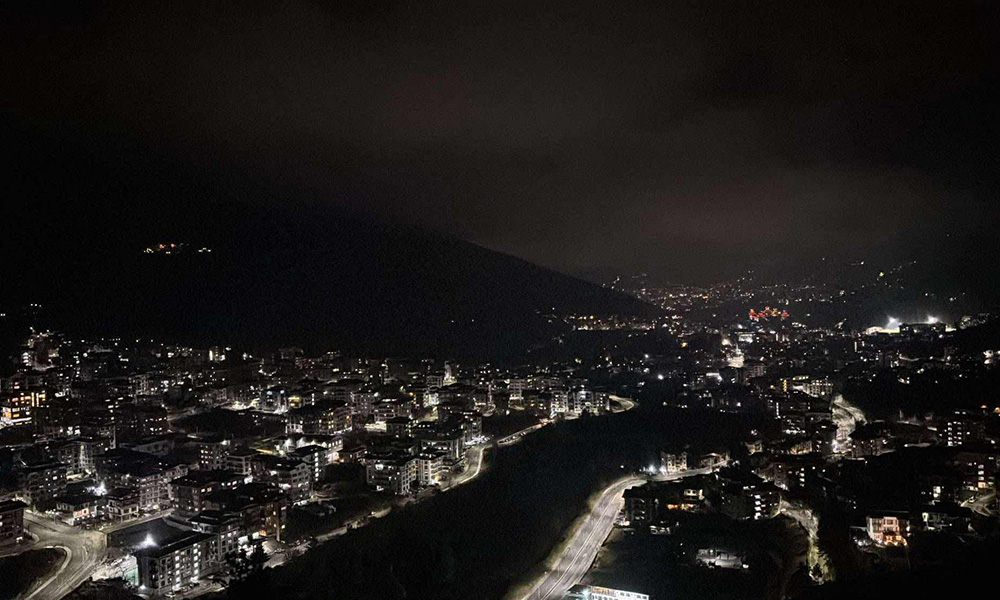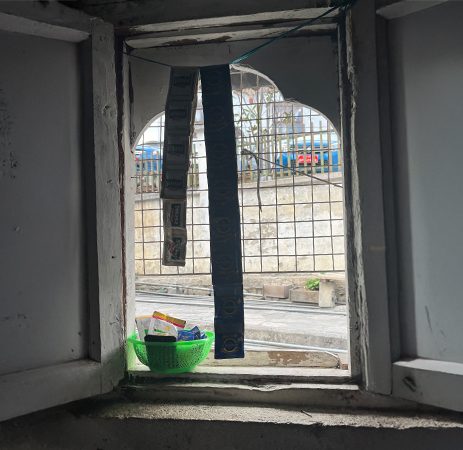Beyond the Data: Navigating Privilege, Pain and Responsibility in Fieldwork
/
Author: Choeying Seldon (SUCCESS project, Bhutan) with editorial support from Sofia Juliet Rajan(IIHS)
Over the past year, I have been researching the lives of low-income migrants in Thimphu as part of the Successful Intervention Pathways for Migration as Adaptation (SUCCESS) project. This regional initiative explores the intersections between climate change and migration across South Asia, and is being implemented in Bhutan, India, Nepal, and Bangladesh. Within this broader framework, our work focused on Thimphu as an urban destination for migrants, examining how environmental and socio-economic vulnerabilities shape the lived experiences of the city’s low-income migrant communities.
To write this blog, I dug deep into my fieldnotes and memories. We are often taught to separate our emotions from our work, but this time I allowed myself to sit in those emotions—to remember the stories that have stayed with me and reflect on the questions that linger. Sitting with those emotions also pushed me to reflect on where I stood in relation to the people whose lives I was studying.

There have been many dead ends: calls unanswered and hours spent walking in circles, trying and failing to find respondents willing to spare their time. Time and again, we returned to the same places hoping to find someone to talk to. But time is a luxury not everyone can afford, and our respondents were constantly in motion. Most were engaged in maintaining infrastructure, cleaning streets, and providing essential urban services. They were also on the frontlines of climate stress, facing challenges like water shortages and flash floods. We often grappled with how to approach someone about their life while they were cleaning sewage drains—or how to find the courage to disturb them during their rare, hard-earned moments of rest at home.
In our research, Gender Equality and Social Inclusion (GESI) frameworks were central, prompting us to seek out diverse voices. This led us to a bar owned by a trans woman, where we met a customer who also identifies as trans. She spoke of her desire to live in Thimphu not because of necessity but because of freedom. Back in her hometown, she felt confined by expectations and norms. Here, despite being unemployed and dependent on friends, she finds a space to live more authentically. For her, the decision to migrate was a quest for social freedom and acceptance. Her story reminded me that migration isn’t always about economics—it’s also about identity, agency, and belonging. In all honesty, it felt greedy, selfish even to have sought out the bar and its customers to fulfill a “GESI” component. Sometimes, it becomes all too easy to reduce people to data points, to fit their lives into neatly labelled boxes on a checklist.
While the framework offers a powerful lens to uncover various dimensions of an individual’s life, it does not fully prepare one for the delicate nature of these exchanges—moments when researcher and respondent, who until then were practically strangers are engaged in deep conversations about the latter’s most personal experiences. We asked them deeply intimate questions—about income, household dynamics, and struggles in the city. Often, these conversations unearthed painful memories. One elderly woman, for instance, was reluctant to speak about her early years in Thimphu. She used the word dukha—sorrow—to describe that time.
She had arrived in the city with her husband and five children, with very little money, no home to stay in, and no relatives to lean on. Similarly, another respondent, “Didi,” spoke of hardship and dukha in her early days here—financial struggles so acute she couldn’t even afford soap to wash her baby’s napkins.
One migrant woman shared how she was forced into marriage after being raped by a stranger. In those moments, watching them grapple with the weight of their own memories, I felt helpless—how do I justify the unearthing of their pain and trauma?
I’m not sure if my respondents will ever read this or truly grasp the impact their stories have had on me. To them, I was likely just a passing researcher—someone who asked a few curious questions and then moved on. This reality constantly reminds me of my own privilege. I have listened deeply to their experiences and carried their stories with me, yet at the end of the day, I return to the comfort and security built by my parents, opportunities that many of my respondents were never afforded.
Many inherited the disadvantages their parents lived with—limited access to education, early entry into precarious forms of labour, and the absence of land, savings, or social networks that might have offered upward mobility. Their lives reveal the harsh reality of intergenerational transmission of disadvantages and vulnerabilities, but they also embody resilience and grit passed down through generations. Take Didi, for example. Despite years of hardship, she has forged a place for herself and her family in Thimphu. “Social network and hard work are the two most important things we need to survive,” she told us. She has ensured her three children received an education and even helped secure a job for her daughter as an accountant with the owner of the apartment building she cleans. Her story is a quiet but powerful reminder that resilience is not just about endurance—it is about actively reshaping what is possible for the next generation, even within deeply unequal systems. However, hers was an exception. Most of the other families we met were still struggling against entrenched barriers such as limited educational mobility, limited livelihood diversification and low household income.

Fieldwork has ended, but I still cross the public toilet where we spent two hours with the attendant, listening to her story. I think of the street stalls where a vendor shared how she educated her children and sent them abroad by selling doma pani (areca nut and betel leaf). Their stories are data now—soon to take various shapes and forms: reports, policy briefs, articles. Their names will be anonymised, reduced to “Respondent 1, 2…5”. Over time, these stories will be joined and eventually replaced by others. It is inevitable in the cycle of research. Beyond the data points and academic outputs, there were real lives shared with vulnerability, courage, and trust. And perhaps the most beautiful part is that there are still so many pieces of their stories that remain unknown to us. That mystery—that unspoken depth—is what keeps them larger than the data they become.
It reminds me that no matter how rigorously we document, analyse, or write, we will never fully capture the entirety of a person’s life. And maybe we are not meant to. Maybe that is where the humanity of this work lies—in the humility of knowing that our respondents are more than what can be transcribed, coded, or cited.
Choeying Seldon is a former Research Associate for the SUCCESS project, with research interests in intergenerational mobility, gender and lived experiences of low-income migrants in Bhutan.
Categories
Countries
CLARE Pillars
CLARE Themes
CLARE Topics
Published
CLARE Projects
CLARE Partners

